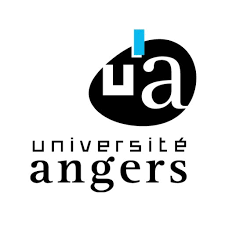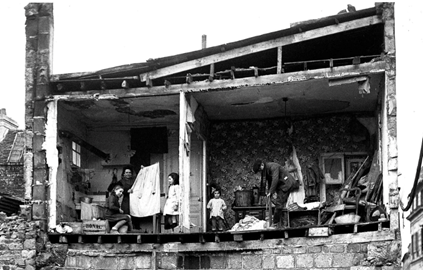The Management of Natural Resources and the Environment in Canada: Historical and Transnational Perspectives
Series Introduction
Relations between humans and non-human inhabitants of the environment are old of several millennia. The history of these relations involves regulations of all sorts about use and preservation, contested or collaborative. In the making of these regulations, users, activists, government agencies and civil society organizations alike have shared contrasting traditions and perspectives on the ecology of natural resources. As recent global climatic trends suggest ominous cataclysmic environmental implications for both the environment and its users, the issue of natural resources and the efficient management of the environment to guarantee the continuous sustainable consumption of the environment and its natural resources has appeared in sharp focus.
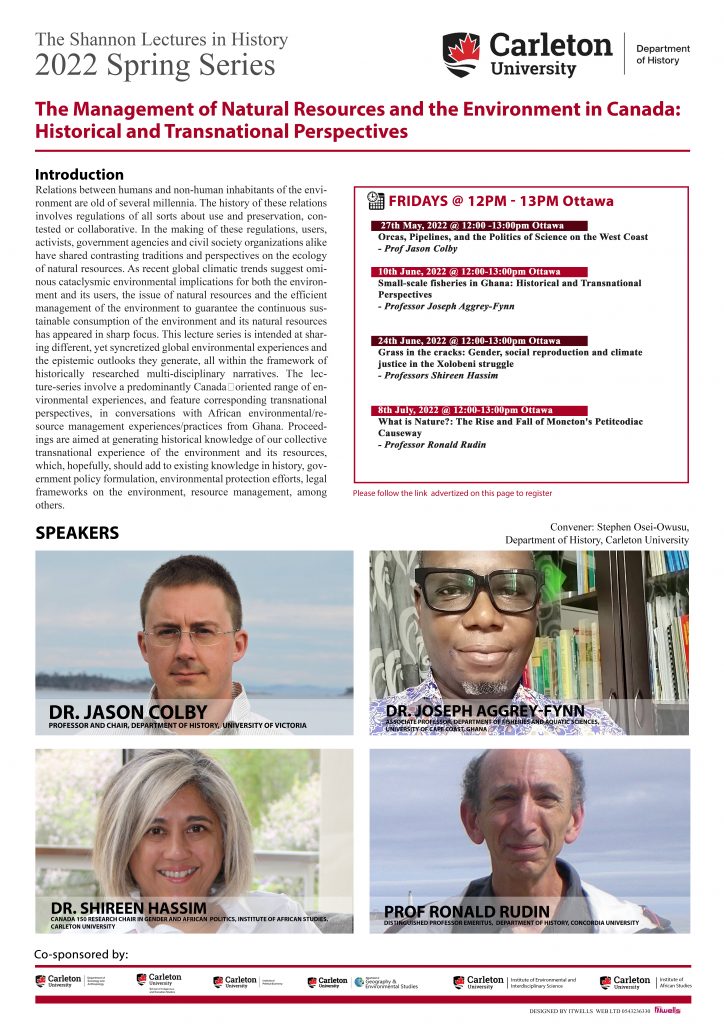
This lecture series is intended at sharing different, yet syncretized global environmental experiences and the epistemic outlooks they generate, all within the framework of historically researched multi-disciplinary narratives. The lecture-series involve a predominantly Canada-oriented range of environmental experiences, and feature corresponding transnational perspectives, in conversations with African environmental/resource management experiences/practices from Ghana. Proceedings are aimed at generating historical knowledge of our collective transnational experience of the environment and its resources, which, hopefully, should add to existing knowledge in history, government policy formulation, environmental protection efforts, legal frameworks on the environment, resource management, among others.
Convenor: Mr. Stephen Osei-Owusu (a Graduate Research Assistant & Ph.D. Candidate, History Department, Carleton), with support by Prof Dominique Marshall, Chair, the Shannon Endowment Committee, Department of History, Carleton University.
Please see the Shannon Series website for more information.
Format of the Series and Dates:
Format: Fridays, lunchtime 12:00 -1:00; 5 minutes introduction; 30 minutes talk; 20 minutes Q&A; Virtual; recorded and posted on the website.
This session will be recorded and uploaded to the Shannon Lectures’ website after the series is complete.
Questions and feedback from the audience, once a session is underway, will be collected in the chat box and read to the presenters.
1st Presentation: Friday, 27th May, 2022.
Orcas, Pipelines, and the Politics of Science on the West Coast with Prof. Jason Colby.
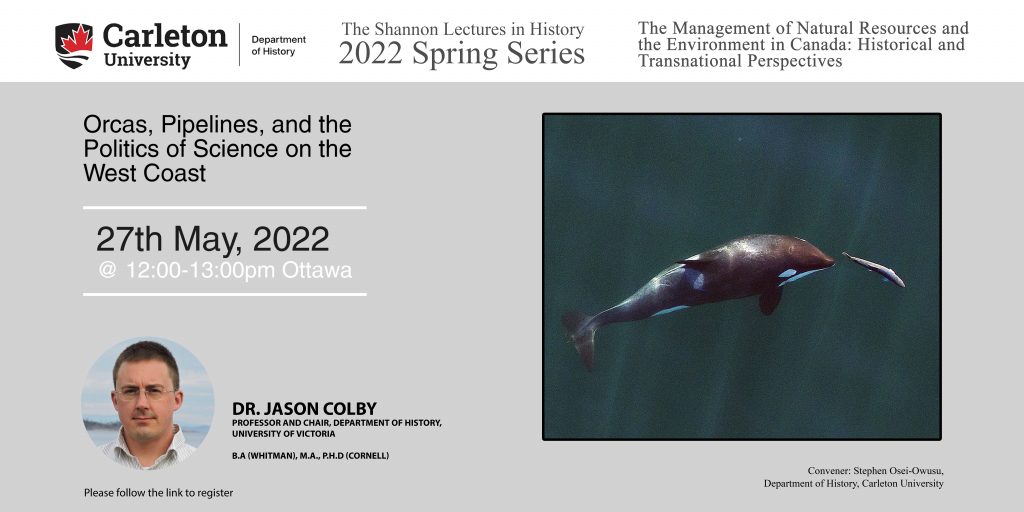
2nd Presentation: Friday, 10th June, 2022.
Small Scale Fisheries in Ghana: Historical and Transnational with Prof. Joseph Aggrey-Fynn.
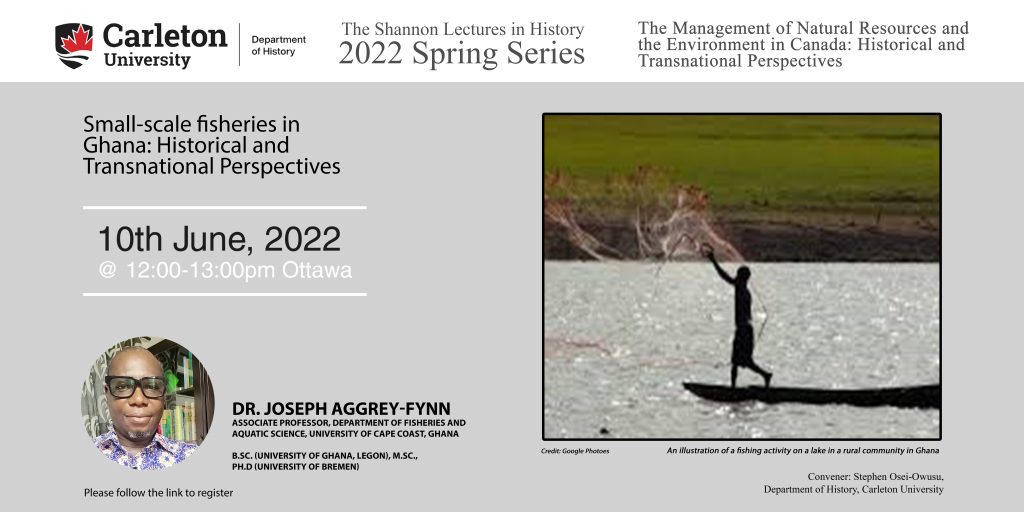
3rd Presentation: Friday, 24th June, 2022.
Grass in the Cracks: Gender, Social Reproduction, and Climate Justice in the Xolobeni Struggle with Prof. Shireen Hassim.
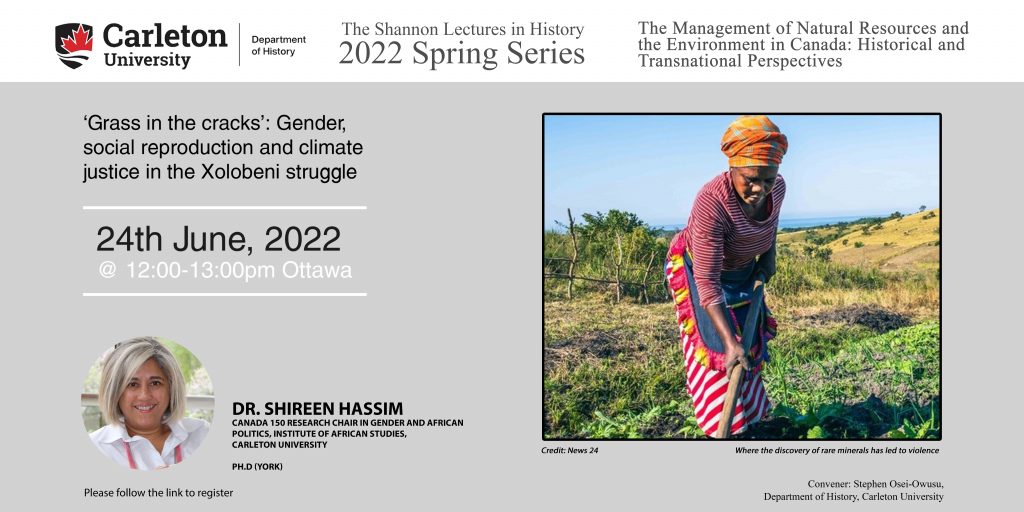
4th Presentation: Friday, 8th July, 2022.
What is Nature?: The Rise and Fall of Moncton’s Petitcodiac Causeway with Prof. Ronald Rudin.
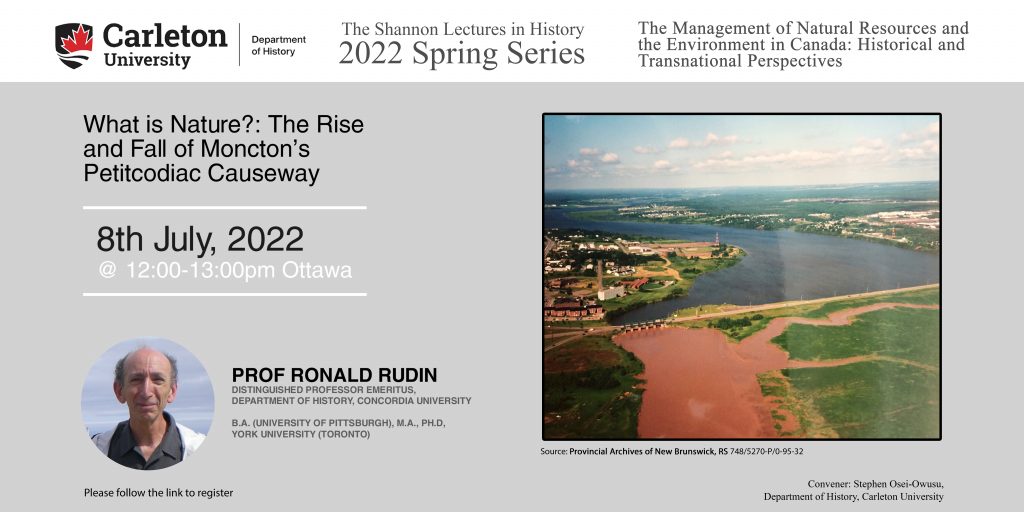
For more information on individual papers including abstracts and speaker bios, please visit the Shannon Lectures website.

